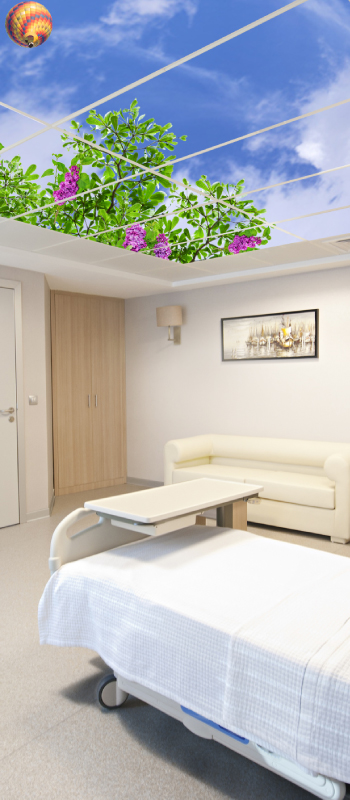
Healing Environment
Several studies have shown that the simulation of natural elements such as daylight experience and views of nature, has a positive impact on the wellbeing of the patient. The idea is that the patient will experience less stress, with the result that this is accelerating the healing process and decreases the need for medication.
Below is an overview of a number of studies in this field.
- Even very short exposure to simulated nature already provides for significant stress reduction (Parsons & Hartig, 2000);
- Improved lighting and improved layout helps to prevent errors, reduces stress, improves sleeping and reduces strongly pain and the use of medication (Ulrich, Quan, Zimring, Joseph and Choudhary, 2004);
- Patients experience less stress and anxiety when they look at a picture of nature. Also, patients may require a much lower dose of medication when they are exposed to simulated nature (Ulrich, 1991);
- Patients who need to have a painful bronchoscopie, stated afterwards to experience significantly less pain when they were exposed to an image of nature that was mounted on the ceiling, in contrast with patients who were not exposed to this picture (Diette et al., 2003);
- The simulation of nature provides a positive distraction, which resulted in emotional and physiological changes (Ulrich and Gilpin, 2003);
- Nature, realistic or simulated, left other environmental features such as music and art far behind in terms of relaxation and thereby reduction of stress (Ulrich, 1991);
- Patients in intensive care who had a view from their bed on nature instead of a blank wall, stayed an average of one and a half day less in the ICU and needed less pain medication (Elsevier, 2009);
- Watching nature shows decrease pain by eliciting positive emotions, reduce stress and distracts patients from the attention to pain (Malenbaum 2008).

